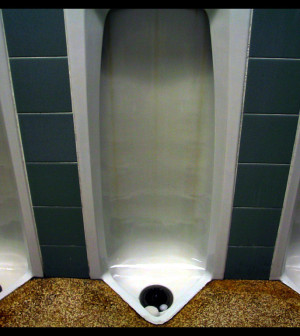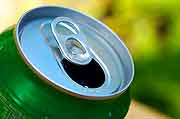- 8 Ways to Increase Dopamine Naturally
- 7 Best Breads for Maintaining Stable Blood Sugar
- Gelatin vs. Collagen: Which is Best for Skin, Nails, and Joints?
- The Long-Term Effects of Daily Turmeric Supplements on Liver Health
- Could Your Grocery Store Meat Be Causing Recurring UTIs?
- Are You Making This Expensive Thermostat Error This Winter?
- Recognizing the Signs of Hypothyroidism
- 10 Strategies to Overcome Insomnia
- Could Artificial Sweeteners Be Aging the Brain Faster?
- Techniques for Soothing Your Nervous System
Sugary Soda Habit May Harm Kidneys, Study Suggests


SATURDAY, Nov. 9If you have a penchant for drinking sugary sodas, you might be raising your risk for kidney disease, new research suggests.
Employees at a university in Japan who consumed more than two sodas a day were more likely to have protein in their urine when compared to those who had fewer or no sodas on a daily basis. Protein in the urine is considered an early, but reversible, marker of kidney damage.
The new study showed an association between drinking soda and an increased risk of kidney damage, but it didn’t necessarily prove that soda is the culprit.
The study included more than 12,000 university employees who underwent their annual check-ups at their health center. As part of the exam, their urine was tested for evidence of protein.
Nearly 11 percent of employees who said they drank two or more soft drinks per day had protein in their urine during three years of follow-up. In contrast, 8.4 percent of those who did not any drink soda and roughly 9 percent of those who drank about one can a day tested positive for protein in their urine.
A related study in rats found that moderate consumption of a sugar called fructose increases the kidney’s sensitivity to a protein that regulates salt balance. According to the Case Western Reserve University researchers, this leads to increased salt reabsorption by cells in the kidneys, which might explain why soda consumption has been linked to diabetes, obesity, kidney failure and high blood pressure.
Both studies were scheduled for presentation Saturday at the annual meeting of the American Society of Nephrology, in Atlanta. Research presented at meetings typically is considered preliminary until published in a peer-reviewed medical journal.
Experts said the new findings add to a growing body of evidence on the unhealthy side effects of drinking too much soda.
Protein in the urine may be a marker for more than just kidney disease, said Dr. Orlando Gutierrez, a kidney specialist at the University of Alabama at Birmingham. “We now understand that protein in the urine may be a really early marker for heart disease, stroke and heart failure,” he said.
“We can assume that this is a healthy population, so I think the results are relative to healthier people, not just those with kidney disease,” Gutierrez said.
Dr. Anil Agarwal, a kidney specialist at Ohio State University, agreed. “The new study suggests that even individuals with normal kidney function are at risk for damage if they drink too much soda,” he said.
And soft drinks sweetened with high-fructose corn syrup may be the most dangerous.
“Fructose is sweeter than glucose, and doesn’t cause feelings of satiety,” he said. It may cause damage via a different pathway than glucose. Instead of increasing blood-sugar levels, fructose may affect the kidneys, he said.
“There is no safe amount of soda,” Agarwal said. “If you look at the recommended amounts of sugar we can safely consume every day, one can of soda exceeds the maximum level.”
American Heart Association guidelines state that the recommended daily sugar intake is 9 teaspoons for adult men, 5 teaspoons for adult women and 3 teaspoons for children. A 12-ounce can of non-diet soda has about 7 teaspoons of sugar, Agarwal said.
Dr. Jaime Uribarri, a kidney specialist at the Icahn School of Medicine at Mount Sinai Medical Center in New York City, said the new findings “reaffirm an association between soda and health problems.” He added that diet soda also can cause health problems.
The bottom line? “Drink water instead of soda,” Uribarri said.
More information
The National Kidney Foundation has more on kidney disease.
Source: HealthDay
Copyright © 2026 HealthDay. All rights reserved.










